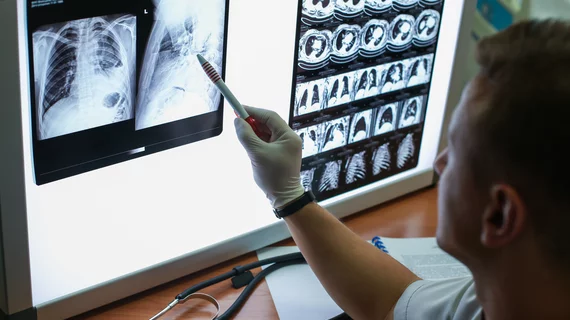FDA clears GE’s AI system for flagging collapsed lung
GE Healthcare has received a green light from the FDA to market a product that embeds AI algorithms in mobile X-ray machines. The product, Critical Care Suite, sends an alert to a physician if it detects signs of a pneumothorax, a type of collapsed lung, as soon as a chest X-ray image is acquired.
The system also pings the technologist performing the procedure when an image needs re-acquiring due to poor quality.
In announcing the 510(k) clearance, GE Healthcare says the development marks the first time the FDA has OK’d an AI application embedded in a medical device for flagging critical findings of this type.
The company worked with researchers at UC-San Francisco (UCSF) to design the system, which leverages GE’s Edison platform.
“When a patient X-ray is taken, the minutes and hours it takes to process and interpret the image can impact the outcome in either direction,” explains Rachael Callcut, MD, a UCSF surgeon who collaborated on the project and leads the institution’s Center for Digital Health Innovation. “AI gives us an opportunity to speed up diagnosis and change the way we care for patients, which could ultimately save lives and improve outcomes.”
GE Healthcare notes that it’s not uncommon for “STAT” chest X-rays to wait several hours for interpretation by a radiologist. At the same time, many exams deemed urgent aren’t genuinely high-priority. The confusion can create delays in treatment of truly critical patients, the company points out.
Jie Xue, president and CEO of GE Healthcare’s global X-ray operation, adds that the newly approved system offers hospitals “an opportunity to try AI without making investments into additional IT infrastructure, security assessments or cybersecurity precautions for routing images offsite.”

